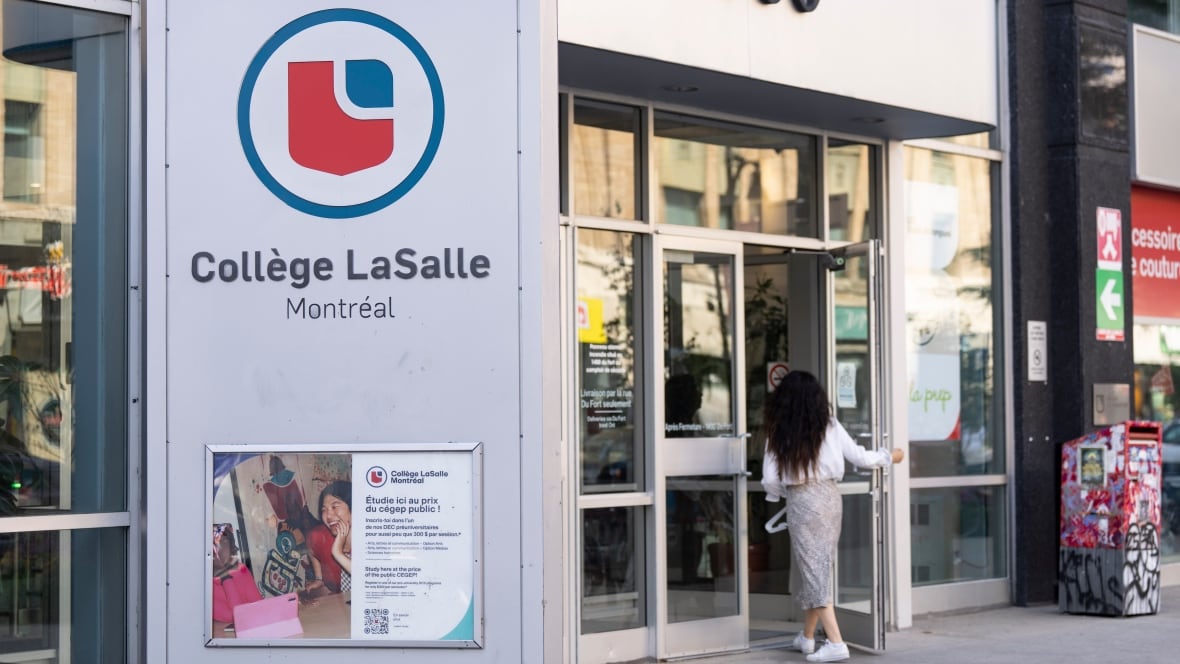Education
LaSalle College Students Face Part-Time Status Before Classes Start

Students at LaSalle College in Montreal are facing significant disruptions as the institution adjusts to comply with Quebec’s new language regulations. With less than a month before the start of the academic year, dozens of students, including Alex Abraham, have been unexpectedly shifted from full-time to part-time status. This decision has left many in a state of uncertainty regarding their education and future career prospects in Quebec.
Abraham, who is 33 years old and entering the second year of his network management program, expressed his shock at the abrupt change. “We all came here with lots of expectations and dreams,” he said after receiving an email notification from the college. Part-time status restricts students’ eligibility for Canada’s post-graduation work permit and limits their ability to work off-campus, which can have severe financial implications for many.
In total, approximately 90 students have been affected by this change, which the college stated is temporary and only impacts the upcoming fall semester. Caroline Gervais, a spokesperson for LaSalle College, explained that the adjustments aim to ensure full compliance with the Charte de la langue française and the government-imposed quotas on English-language vocational programs.
The college’s decision comes after it exceeded the enrollment cap for its English-language programs by 1,066 students during the previous academic year, resulting in fines totaling nearly $30 million from the Quebec government. This figure includes a fine of $21,113,864 imposed for 2024-25, in addition to an earlier fine of $8.7 million for the same infraction. LaSalle College is currently challenging these fines in a civil suit in Quebec’s Superior Court.
Despite the college’s claims, many students, including Abraham, feel caught in a situation beyond their control. He learned about LaSalle College through an agency while living in India, where he was drawn to the opportunity to study and build a career in Quebec. “The standard of living is good here in Canada compared to India,” Abraham noted, underscoring the challenges faced by international students adjusting to new educational and cultural environments.
The college has indicated that factors beyond its control, such as student failures and changes in academic pathways, influenced the decision to alter student enrollments. Gervais clarified that the changes do not indicate that LaSalle College has exceeded its overall quota for its programs. Instead, they reflect the complexities of scheduling and capacity within the affected programs.
In light of these developments, the college has arranged a meeting between students and representatives from Immigration Canada. Abraham hopes this meeting will clarify the reasons behind the sudden change in his status. “I have the right to know the reason,” he stated, emphasizing his dissatisfaction with the situation and his desire for transparency.
As LaSalle College navigates the repercussions of its enrollment decisions and the challenges posed by Bill 96, students like Abraham find themselves grappling with uncertainty about their education and future opportunities in Quebec. The situation highlights the broader implications of government policies on international students and the educational landscape in the province.
-

 Science3 months ago
Science3 months agoToyoake City Proposes Daily Two-Hour Smartphone Use Limit
-

 Top Stories3 months ago
Top Stories3 months agoPedestrian Fatally Injured in Esquimalt Collision on August 14
-

 Health3 months ago
Health3 months agoB.C. Review Reveals Urgent Need for Rare-Disease Drug Reforms
-

 Technology3 months ago
Technology3 months agoDark Adventure Game “Bye Sweet Carole” Set for October Release
-

 World3 months ago
World3 months agoJimmy Lai’s Defense Challenges Charges Under National Security Law
-

 Lifestyle3 months ago
Lifestyle3 months agoVictoria’s Pop-Up Shop Shines Light on B.C.’s Wolf Cull
-

 Technology3 months ago
Technology3 months agoKonami Revives Iconic Metal Gear Solid Delta Ahead of Release
-

 Technology3 months ago
Technology3 months agoApple Expands Self-Service Repair Program to Canada
-

 Technology3 months ago
Technology3 months agoSnapmaker U1 Color 3D Printer Redefines Speed and Sustainability
-

 Technology3 months ago
Technology3 months agoAION Folding Knife: Redefining EDC Design with Premium Materials
-

 Business3 months ago
Business3 months agoGordon Murray Automotive Unveils S1 LM and Le Mans GTR at Monterey
-

 Technology3 months ago
Technology3 months agoSolve Today’s Wordle Challenge: Hints and Answer for August 19









